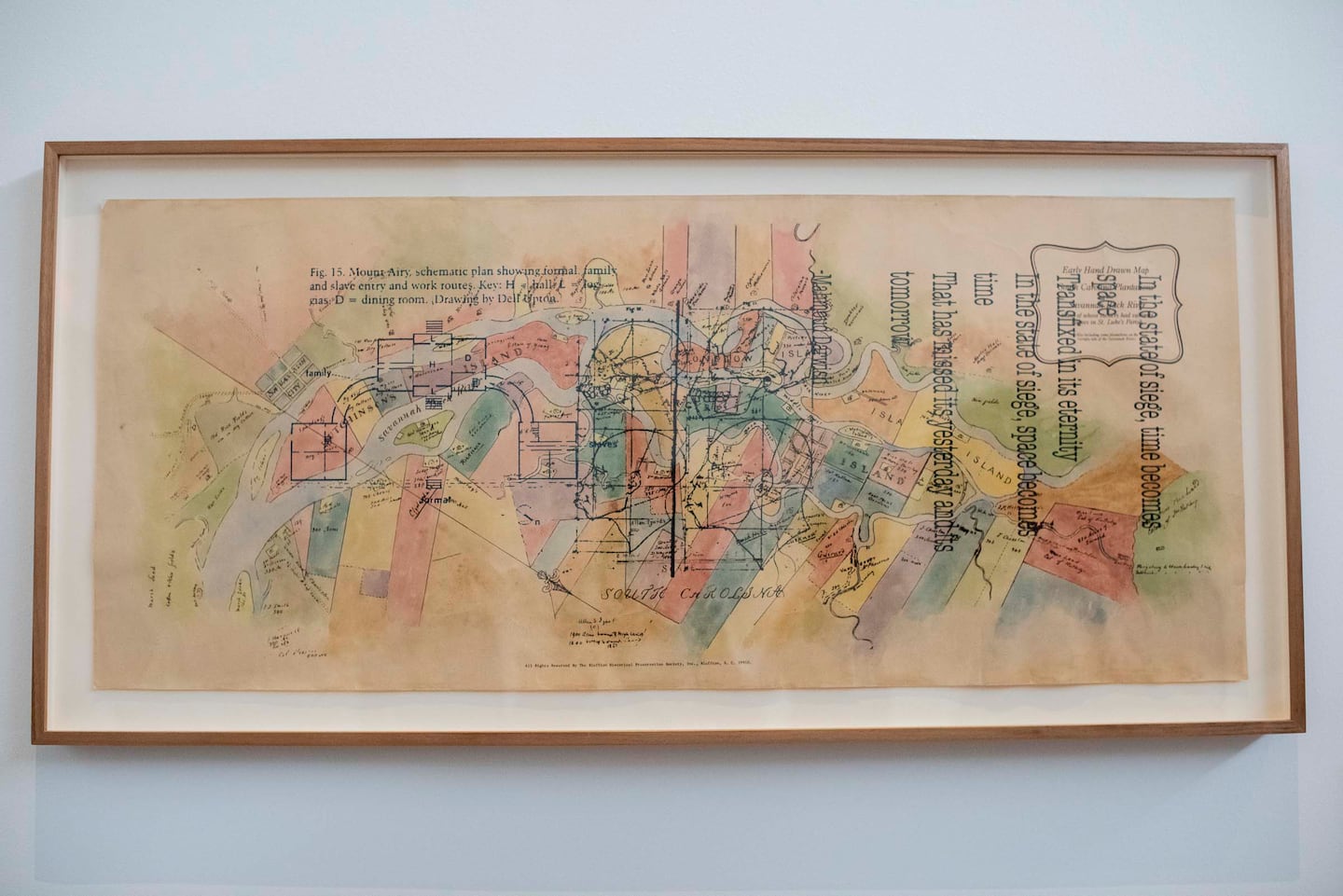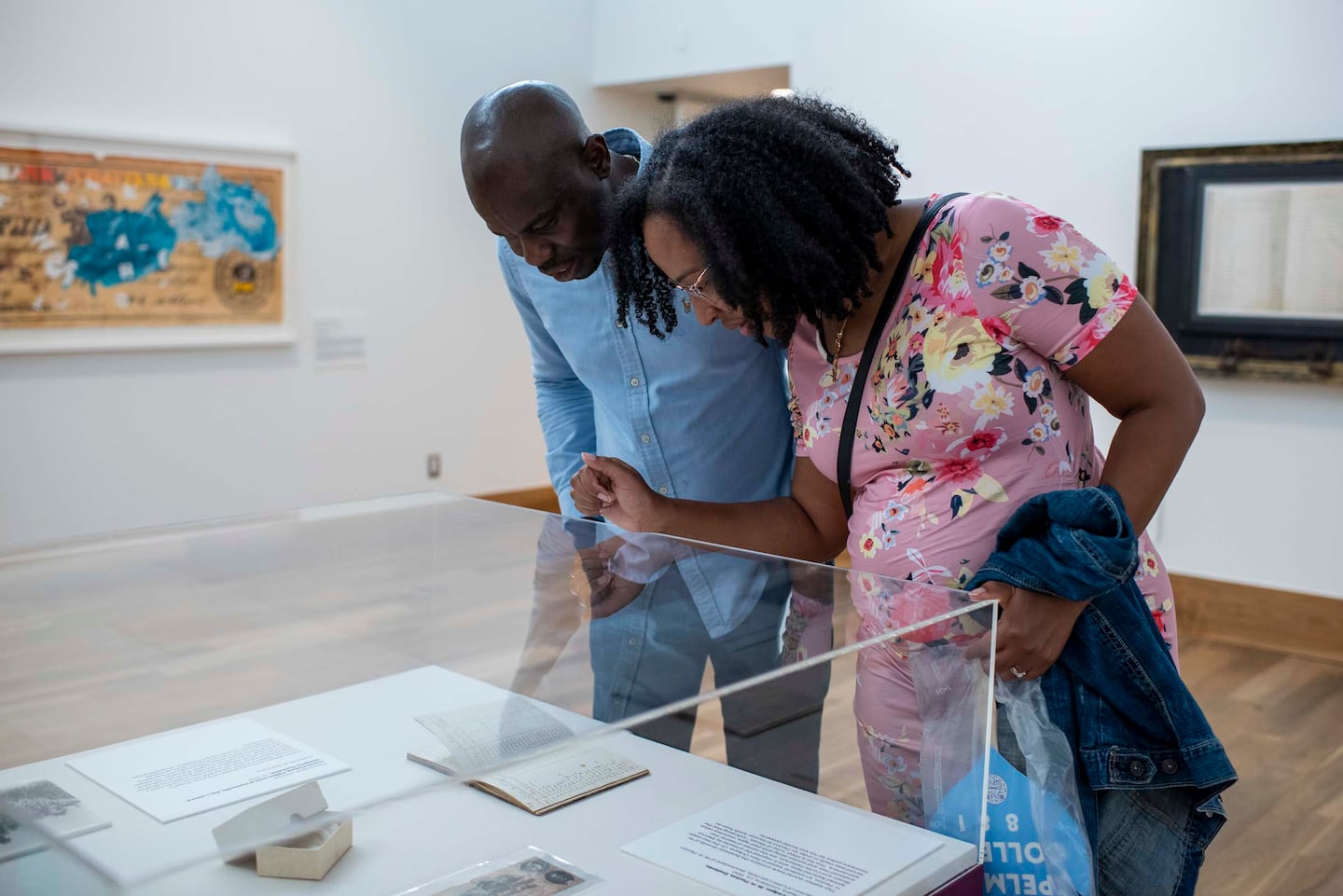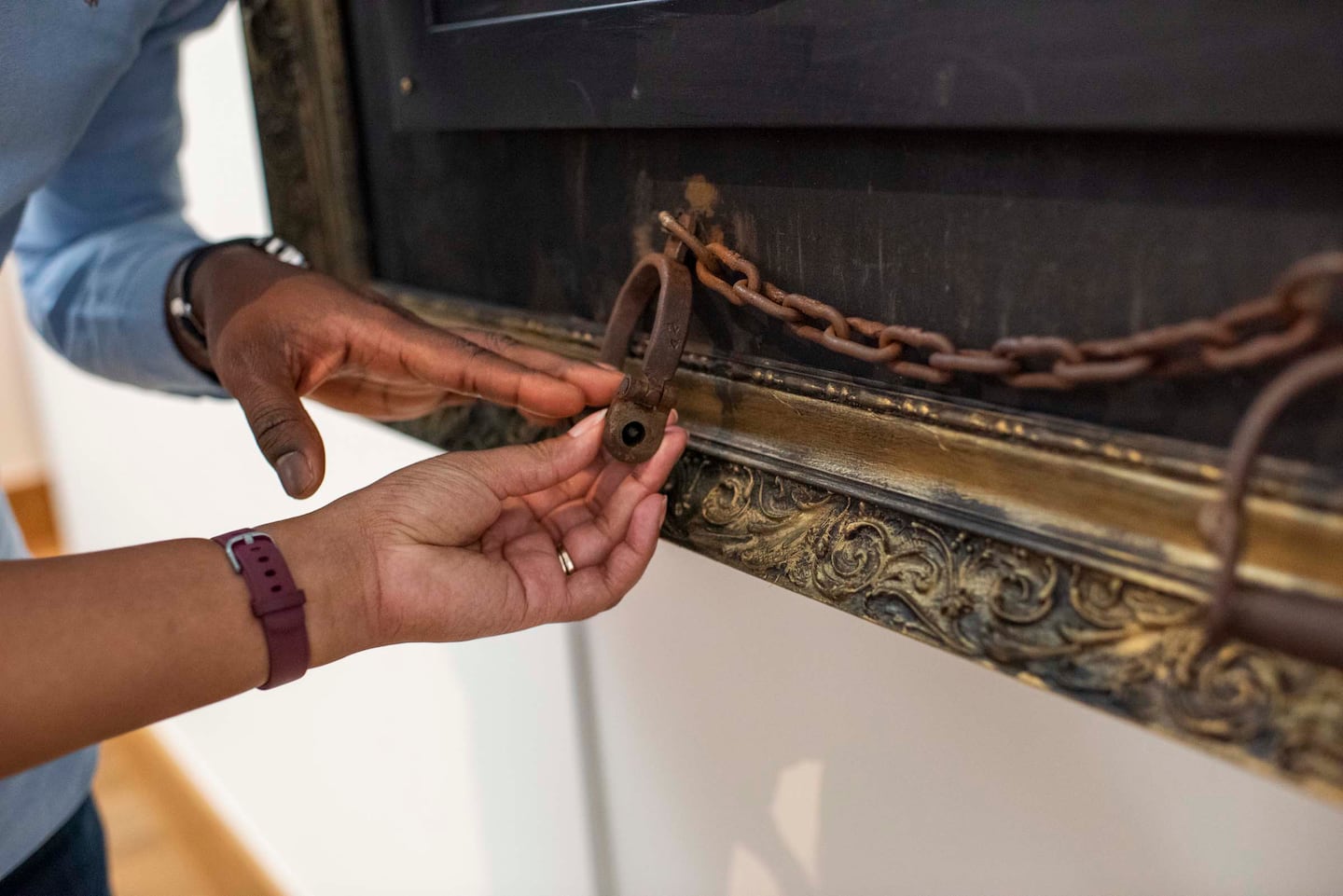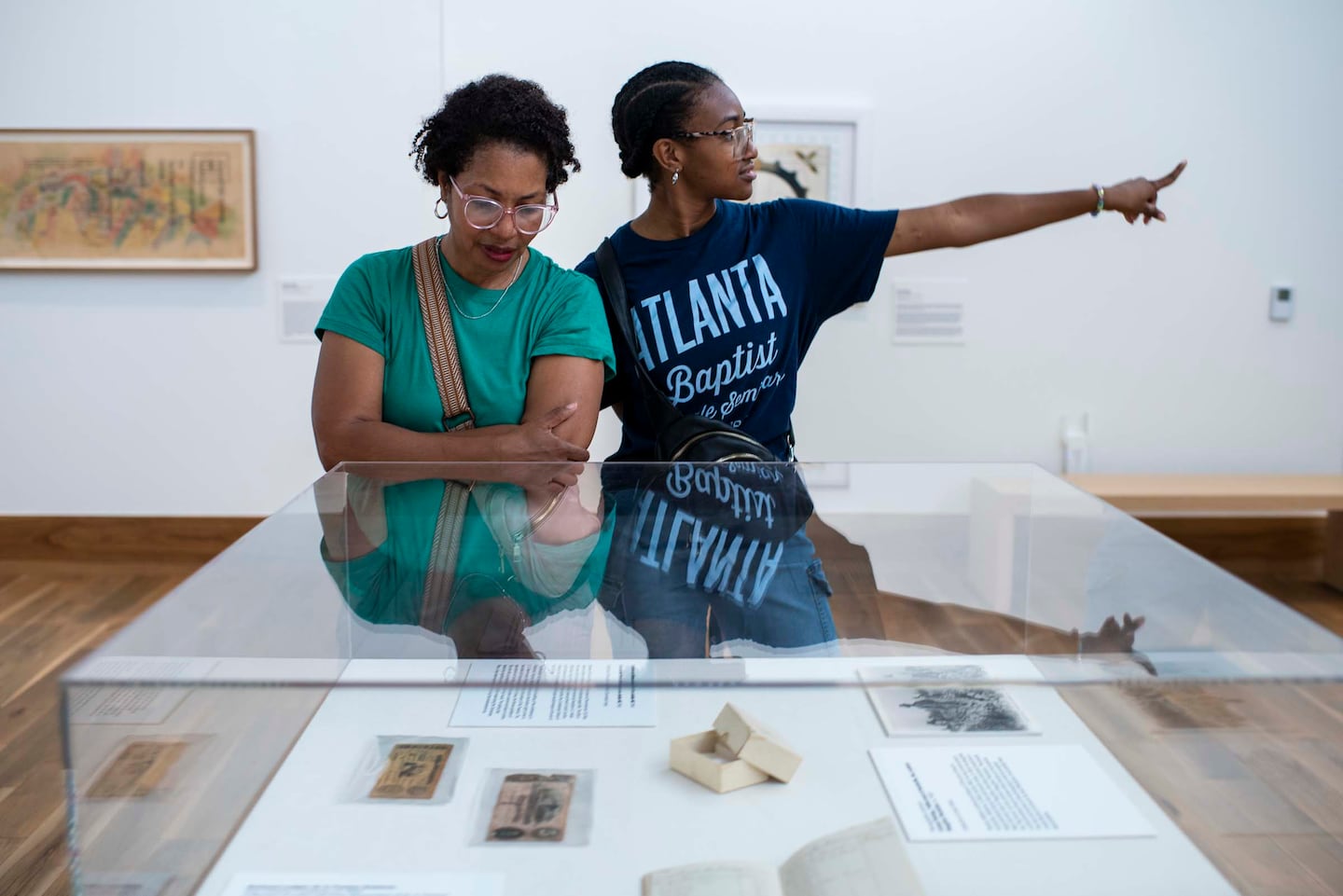ATLANTA — A new and emotional art exhibition at Spelman College is turning painful chapters of American history into powerful works of modern art.
The exhibition, titled “Repossessions,” invites Black artists to transform artifacts donated by white families whose ancestors were slaveholders. Items on display include Confederate money, plantation maps, and a leather ledger listing enslaved people and their dollar value.
Dr. Liz Andrews, Executive Director of the Spelman College Museum of Fine Art, says the project aims to reclaim and reinterpret these objects in a meaningful way.
“The idea is to take documents that come from white families’ personal archives and then give them to Black artists to transform them into art objects,” Andrews said. “This is a part of our history, and it’s a really ugly and foundational part of our history. What the artists have done is transformational and extremely powerful.”
The exhibition is part of the Reparations Project, a collaborative effort involving white families who are reckoning with their ties to slavery. “There is a group called the Reparations Project that includes many white families who are reckoning with the fact that they are descendants of slaveholders,” Andrews explained.
One piece in the collection features aged shackles that play a song when touched; a haunting reminder of the human cost of slavery.
Visitor CiCi Kelley described her reaction as visceral. “Especially as it relates to the Confederate money and the loss of wages, the report of human bodies just as transactions, as if it’s a car,” she said.
Andrews says the exhibition’s message is especially relevant today, as debates over how to teach and remember history continue. “These are not monuments,” she said. “These are objects transforming the past and hopefully transforming the future.”
Repossessions is on display at the Spelman College Museum of Fine Art through April.
WSB’s Veronica Waters contributed to this story












